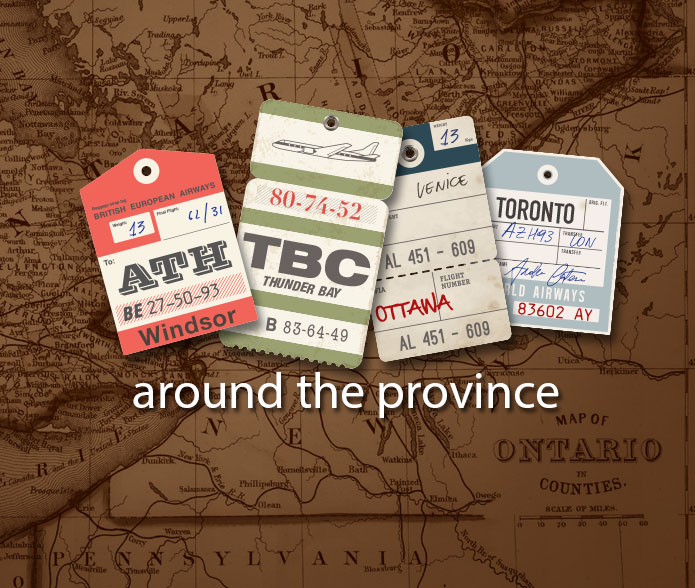Learn about the benefits of constructing a multi-year internship from a MLIS student's perspective.
Who’s doing what: ODI survey explores digitization practices
Question: After successfully digitizing more than one million pages of Ontario government documents, what is the next step?
Answer: Well … if you are a librarian, it’s time to send out a survey!
Under the leadership of chair Carol Perry, the Ontario Digitization Initiative (ODI) has shepherded the digitization of more than a million pages of government materials over the last several years, ensuring improved access and increased exposure. The Internet Archive centre at the University of Toronto was responsible for most of the digitization and currently houses this large set of items.
One of the more persistent challenges in librarianship has been the lack of awareness of what other institutions and librarians are undertaking. The same situation exists among those who work in government documents. Those involved with ODI had long recognized this as an obstacle and, in the spring of 2013, we sought a remedy.
We volunteered to conduct a province-wide survey and, with advice and support from the other members of ODI, drew up a questionnaire. Jude Stewart, a University of Toronto iSchool practicum student, formatted the 32 final questions and, with the help of Loren Fantin from Our Digital World, the survey questionnaire was distributed. Utilizing the expertise and connections built up by the ODI membership, we created a list of 77 likely respondents, including archives, government ministries, special libraries, and universities. Our goal was to achieve a greater understanding of what digitization projects had been completed, were currently underway, or were in the planning stages in Ontario, and to discover the common successes as well as the obstacles encountered.
Of the 77 groups we contacted, 22 replied. Their answers were instructive in many areas. Primarily, the overall objectives of these digitization projects were to enhance access and preserve the records of the print documents. Most of these projects were funded by normal operating budgets, although a significant proportion of the institutions managed to obtain grants. More than half of the projects described had been completed, while the rest were ongoing.
The subject areas and scope of the materials digitized reflected the holdings of the individual body: for example, the Ministry of the Environment worked primarily on their scientific and technical reports. Most of the materials scanned by the various entities involved government publications. Regarding the breakdown of document types, the typical categories included annual reports, maps, monographs, research reports, serials and scientific papers. The items were saved predominantly in PDF, JPG and DOC formats. The date range of these publications was wide, beginning in the 1860s and continuing to the present day. Regarding cataloguing metadata standards, most groups followed the MARC and Dublin core systems. The bulk of scanning and quality control work was outsourced for completion, although a sizable percentage was completed in-house.
Although the survey results attested to the high value placed on such digitization projects, more than 90 per cent of respondents indicated that they would not pursue further scanning of print materials. Several factors contributed to this unfortunate projection: the largest problem was staffing shortfalls, followed by lack of funding. Conditions such as low priority of future projects, lack of interest within the organization, and outdated technical infrastructure compounded the lack of progress on new digital ventures.
One crucial element ODI identified in the digitization of print documents, which was supported by the survey results, was that high-quality metadata is an absolute necessity. Establishing a high level of metadata was probably the most challenging aspect of all the processes required in making the transition from print to digital. Low-quality metadata results in far less accurate, effective, and comprehensive search results.

Our investigation was extremely useful on several fronts. Contacts from a number of libraries and other organizations have been located with the hope that a network for further digitization efforts can be established. A record of what items have been scanned and made accessible has been created so that duplication can be avoided. Next, we will create a wiki to share the information gathered among the respondents with an eye to a wider audience in future. We also plan on resubmitting our set of questions to those among our contact list to those who were not able to reply the first time so we may gain further data.
If you would like to join our efforts or have additional comments or queries, please contact:
Peter Duerr: pduerr[at]yorku.ca or Simone O’Byrne: simone.obyrne[at]ontario.ca
Peter Duerr is an Assistant Librarian at the Domestic Government Documents & Disaster Management, York University.
Simone O’Byrne is an Information Specialist at the Ontario Ministry of the Environment.

